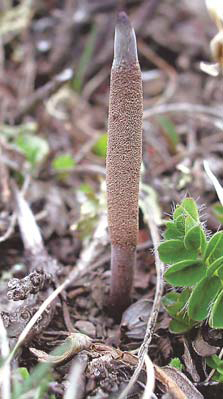Economy
Rare fungus faces extinction
By Daniel Chinoy (China Daily)
Updated: 2010-04-15 07:05
 |
Large Medium Small |
|
||||
The WWF is also attempting to create a "sustainable harvest" label similar to the fair trade label for coffee to use with plants gathered in an environmentally sound way.
In Qinghai, authorities have ordered that caterpillar fungus only be harvested from the same areas every other year, while in 2003 the Tibet autonomous region established a national protected area for caterpillar fungus and placed a restriction on its harvesting.
Such efforts face serious obstacles, however, including poor coordination between numerous government agencies involved in the regulation of the TCM supply chain, said Xu at the WWF. This results in contradictory laws and regulations, muddled responsibilities and poor enforcement of the laws that do exist, he said.
Moreover, the areas where medicinal plants are harvested are usually hard to reach, making enforcement of environmental regulations difficult and costly. "The government is beginning to focus on this more seriously," said Guo. "The challenge is that most areas with medicinal herbs are poor, remote and hard to regulate."
For their part, some traditional Chinese medicine doctors now prescribe
|
 |
|
Dongchongxiacao, a rare fungus |
"About 3,000 years ago, this was not an issue, but now we are dealing with challenges around us that we never had before," said Lixin Huang at the American College of TCM. "If we still use the same old way of practicing medicine without acknowledging that we have a responsibility for nature, then soon we're going to wipe out a lot of plant and animal species."
But for Ma Youcai, there is simply too much money to be made to not harvest the caterpillar fungus.
Next year, he will have saved enough to buy his family a computer, which he plans to use to follow the news and learn more about the world outside his village. He also hopes it will improve his caterpillar fungus sales, since he will be able to look up prices and gather more information about the market online.
"If we didn't look for the fungus, we would be much poorer. It makes our lives much better," he said.
(China Daily 04/15/2010 page1)







